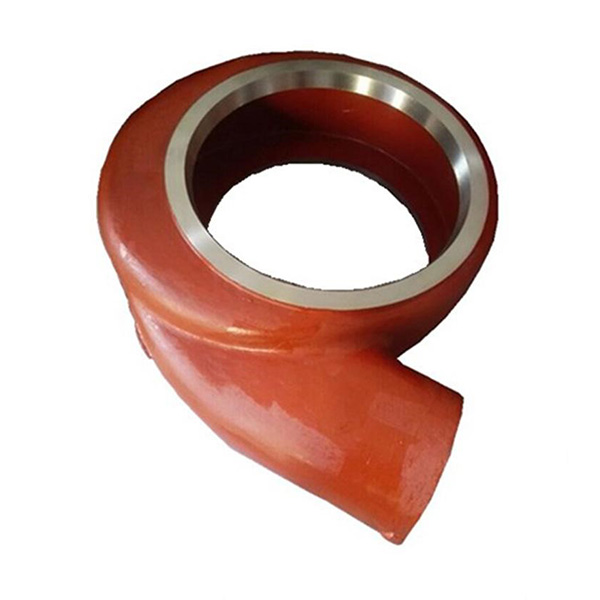Mobile:+86-311-808-126-83
Email:info@ydcastings.com
impeller pump centrifugal
Understanding Impeller and Centrifugal Pumps A Comprehensive Overview
Pumps are vital components in various industrial and commercial applications, serving the essential function of moving fluids from one location to another. Among the various types of pumps used in modern systems, impeller pumps, particularly centrifugal pumps, play a crucial role. This article will delve into the mechanics, applications, advantages, and considerations surrounding impeller and centrifugal pumps.
The Mechanics Behind Impeller Pumps
At the heart of an impeller pump is the impeller itself, a rotating component designed to transfer energy to the fluid, thereby increasing its velocity and pressure. The standard operational principle of an impeller pump is based on centrifugal force. As the impeller spins, it imparts kinetic energy to the fluid—drawing it into the pump casing and forcing it outwards through the pump’s discharge.
Centrifugal pumps are characterized by their robust and relatively simple construction, featuring a multi-blade impeller situated in a volute casing. This design facilitates efficient fluid movement, making centrifugal pumps ideal for handling large volumes of liquids with low viscosity.
Advantages of Using Impeller and Centrifugal Pumps
1. Efficiency Centrifugal pumps, especially those with well-designed impellers, exhibit high efficiency, enabling them to transport fluids efficiently while consuming less energy. This efficiency is particularly pronounced in applications involving a continuous flow of liquids.
2. Versatility Impeller pumps are versatile and can handle a variety of fluids, including water, chemicals, and slurry mixtures. This adaptability makes them suitable for diverse industries, from water treatment to manufacturing processes.
3. Simple Maintenance The basic design of centrifugal pumps makes them relatively easy to maintain and service. With fewer moving parts compared to other pump types, problems can often be diagnosed and repaired without extensive downtime.
4. High Flow Rates Centrifugal pumps are capable of achieving high flow rates, making them ideal for applications requiring the transportation of significant volumes of liquid, such as irrigation systems and fire suppression systems.
Applications of Impeller Pumps
Impeller and centrifugal pumps find applications across numerous sectors
impeller pump centrifugal

- Water Supply and Treatment These pumps are critical in municipal water supply systems, ensuring efficient distribution
. In wastewater treatment facilities, centrifugal pumps are utilized for transporting influent and effluent.- Industrial Processes Many manufacturing plants rely on impeller pumps to transfer chemicals, coolants, and other process fluids essential for production.
- Agriculture In agricultural settings, centrifugal pumps are used for irrigation purposes, providing essential water supply for crops.
- HVAC Systems The pumps are widely employed in heating, ventilation, and air conditioning systems to circulate water or refrigerants throughout the installation.
Considerations When Choosing an Impeller Pump
While impeller and centrifugal pumps offer numerous benefits, there are several considerations to keep in mind when selecting the right pump for a specific application
- Fluid Characteristics Understanding the properties of the fluid being pumped, including viscosity, temperature, and potential contaminants, is crucial in selecting a suitable pump.
- Pump Design The design of the impeller, including the number of blades, material, and size, can impact the pump's performance. Options include open, semi-open, and closed impellers, each suited for different applications.
- Head and Capacity Requirements Assessing the required flow rate and the total dynamic head (TDH) is essential in determining the right pump size and type.
- Energy Efficiency Considering the long-term energy costs associated with pump operation can lead to significant savings, making it wise to choose energy-efficient models.
Conclusion
In conclusion, impeller and centrifugal pumps are indispensable tools in fluid movement across various industries. Their efficiency, versatility, and ease of maintenance make them a preferred choice for many applications. Understanding their mechanics, advantages, and how to select the right pump is crucial for optimal performance and longevity in any pumping system. Whether in water treatment, industrial processes, or agricultural operations, centrifugal pumps continue to impact and enhance the way fluids are managed globally.
-
Why Should You Invest in Superior Pump Castings for Your Equipment?NewsJun.09,2025
-
Unlock Performance Potential with Stainless Impellers and Aluminum End CapsNewsJun.09,2025
-
Revolutionize Your Machinery with Superior Cast Iron and Aluminum ComponentsNewsJun.09,2025
-
Revolutionize Fluid Dynamics with Premium Pump ComponentsNewsJun.09,2025
-
Optimizing Industrial Systems with Essential Valve ComponentsNewsJun.09,2025
-
Elevate Grid Efficiency with High-Precision Power CastingsNewsJun.09,2025











